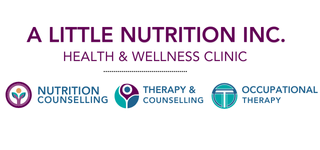Bringing back family dinners! – The importance of healthier eating habits for your family
Did you know that 30 percent of Canadians find it challenging to find time to eat meals with friends and family?
Furthermore, many people say they spend their meal times looking at texts or emails during meals. This can certainly impact health. It’s an enriching experience for people of all ages to share meals, and there are many benefits to eating together as a family, or with others, especially without digital distractions. The biggest barriers to eating together are busy schedules like work and evening activities. It’s worth the effort because everyone benefits when you eat in the company of others!
Check out our new segment on creating healthier eating habits for your family
WHY SHARE MEALS WITH OTHERS?
Children who eat with their family have more nutritious diets, better academic performance, a lower risk for being overweight and less risk of eating disorders. Plus, children tend to have increased intake of vegetables and fruit, and a decreased intake of sugar-sweetened beverages.
• Teens who share family meals get better grades, and are less likely to smoke, use drugs or alcohol, or to participate in serious fights.
• Adults who eat with friends and family tend to eat more vegetables and fruits, drink less pop, eat fewer meals at fast food restaurants, and have lower body mass indexes.
• Older adults who eat as part of a group have better diets, improved nutrient intake and lower rates of malnutrition.
• People who come together in communities can eat together at community kitchens, where they learn to cook, share meals, try new foods, have fun and learn about nutrition
Sharing family meals doesn’t only mean dinner! If your evening schedule is hectic, share breakfast meals or have brunch together on the weekends. Most studies done on the benefits of family meals start with sharing at least four meals together per week.
START A CONVERSATION
For many people, sharing meals is a favourite time of day to interact with family and
friends. It allows people to connect share traditions, learn, communicate and listen. If
you are new to family meals, here are some Do’s and don’ts:
- Do give everyone at the table a chance to speak.
- Don’t use it as a time to scold or discipline picky eaters.
- Do ask questions that require more than a “yes” or “no” answer. So, instead of “did you have a good day?” try asking, “tell me something interesting that happened today.”
Sharing family meals doesn’t only mean dinner! If your evening schedule is hectic, share breakfast meals or have brunch together on the weekends. Most studies done on the benefits of family meals start with sharing at least four meals together per week.
They all count!
This article was written and sourced from Dietitians of Canada National Nutrition Month campaign: https://www.dietitians.ca/Downloads/Public/07—Nutrition-Month-2019/English-Factsheets-2019/NM-2019-FactSheet-05-Bring-Us-Together-EN.aspx
HOW DO I BOOK AN APPOINTMENT WITH A REGISTERED DIETITIAN?
- To book an appointment with one of our Registered Dietitians or therapists, you can:
- Phone: 204-515-7466
- Email: admin@alittlenutrition.com
- Book online: https://alittlenutrition.janeapp.com






